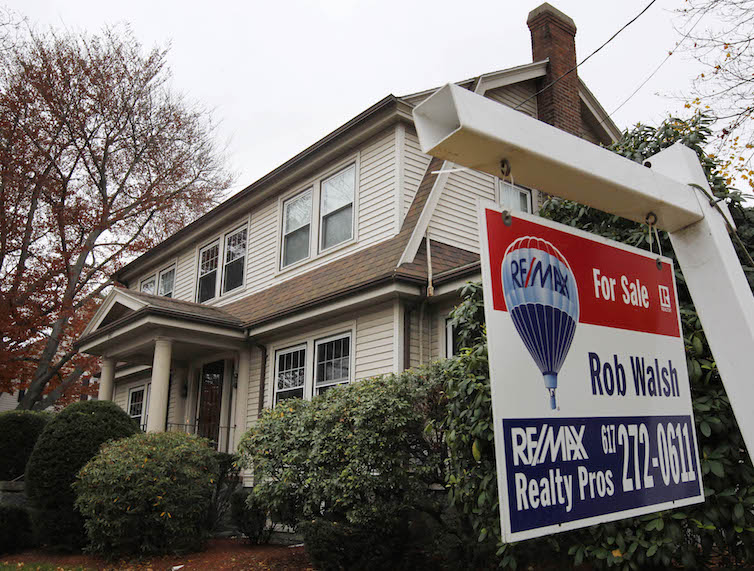Eric Miller: The Unnamed Behemoth: Review of “Public Intellectuals in the Global Arena” http://amzn.to/2pSZyVd: “Deep learning eloquently brought to bear on the contemporary moment has, quite evidently, not been enough to shore up the aging foundations of our republic… https://www.commonwealmagazine.org/unnamed-behemoth
…And a live-from-the-West-Wing Twitter feed is not likely to advance our fortunes, either…. Is the liberal democratic tradition up to the challenge—the challenge of disciplining an economic order that exists not to prosper democracy but itself? On such crucial questions this volume sounds an uncertain note—and a rather quiet uncertain note at that…. No thoroughgoing leftists (seemingly) number among the contributors—none, that is, disposed to warn of enlarging catastrophic conflict between democracy and capital…
(1) But I thought I had done so! Was I too elliptical? “Wealth imbalances alone produce a situation in which… market systems go horribly, dreadfully, diabolically wrong. Consider the Bengal famine…. And what of the British state that ruled India, and was responsible for checking to see whether the incentives the market system was providing really were the incentives that we wanted people to responding to? Prime Minister Winston Churchill sent a telegram, asking: if it were really true that there was famine in India, why was Mohandas Gandhi still alive?…”
(2) The problem, of course, is that the old leftist shibboleth is no longer something anybody can believe in:
The proletariat will use its political supremacy to wrest… centralise all instruments of production in the hands of the State, i.e., of the proletariat organised as the ruling class; and to increase the total productive forces as rapidly as possible…. When… class distinctions have disappeared, and… production has been concentrated in the hands of a vast association of the whole nation… public power will lose its political character… [as] merely the organised power of one class for oppressing another…. In place of… society with its classes and class antagonisms, we shall have an association, in which the free development of each is the condition for the free development of all…
(3) And as Keynes wrote about Trotsky back in 1926:
Granted his assumptions, much of Trotsky’s argument is, I think, unanswerable…. But what are his assumptions?… That a plan exists… that… [that] the proletariat… are converted to the plan… the rest who for purely selfish reasons oppose it…. If we pressed him, I suppose he would mention Marx. And there we will leave him with an echo of his own words–“together with theological literature, perhaps the most useless, and in any case the most boring form of verbal creation.”
Trotsky’s book must confirm us in our conviction of the uselessness, the empty-headedness of Force at the present stage…. All the political parties alike have their origins in past ideas and not in new ideas–and none more conspicuously so than the Marxists. It is not necessary to debate the subtleties of what justifies a man in promoting his gospel by force; for no one has a gospel. The next move is with the head, and fists must wait…
(4) So what is the new gospel—or, rather, what is the public-sphere intellectual-sociological process that we ought to have to discern the new gospel? And do we have that process? And since we do not, how should we go about trying to build it? Those are, I think, the big questions that our book was trying to address, fitfully and unsatisfactorily as we did so.
Back to Eric:
Willy Lam… on… China… places his hope in… “universal norms,” “universal-style democratic institutions,” and “the values enshrined in the charters of the United Nations.”… [Michael] Zuckert too finds the “liberal-democratic tradition” to be “the indispensable ground for our common moral and political life.” But is the liberal democratic tradition up to the challenge—the challenge of disciplining an economic order that exists not to prosper democracy but itself?…
(5) The answer was supposed to be “social democracy”—or, if you preferred, “liberal democratic socialism”, although the S-ism word has, in my view, been too deeply poisoned by the really existing socialisms that existed behind the Iron Curtain for it to be of any positive discursive use. In Polanyian terms, social democracy was supposed to ensure that people had the rights they thought they deserved and expected to see instantiated even though they were not property rights properly—their rights to stable communities, anticipated income levels, and stability of life and economic organization that Polanyi argued a market society undermined by its “fictitious” transformation of land, labor, and finance into “commodities”. Yet somehow there is now not a Polanyian revolt of “society” against the market economy, but rather of some elements of “society” against social democracy—it is not the market economy, but rather social democracy that is seen as illegitimately taxing and regulating the “productive” and giving to the “unproductive”. The question of the breakdown of the social democratic order in the face of first a hard neoliberalist and now a neo-fascist challenge remains poorly understood.
Back to Eric:
Tellingly, many of the book’s authors find themselves preoccupied with structural-functionalist questions regarding the evolving place of public intellectuals… taking for granted… integrity and stability (or… the impossibility of an alternative)… [and] musings on the “role” of intellectuals in it…. Lilla… contends that “the era of liberal idealism that began in the 1980s and spread in the 1990s is over,” and that we now find ourselves illiberally bound to a global behemoth that is yet unnamed—or not named properly: “We have no idea how this system really works, or even what to call it”…
(6) I see those two currents not in opposition but as instead in mutual support: we do not understand the social and societal world in which we are embedded, and yet we must understand—and fulfill—our role in order to even have a chance of creating a society that can make its important choices. “Tradition” is not an alternative—and it never was. There never were societies based on the “traditional” in the sense that what is old is what is good, and the older the better. There were societies in which change came only slowly, so that what had worked for some people in the relatively recent past was likely to work (of only for today’s analogues of those same people) today. There were societies that turned antiquity and habit into an advantageous Burkean judo move: instead buying all new furniture, find a creative, clever, and beneficial way to utilize the furniture you have inherited, no matter how differently you are using it from what its original purchasers used it for. There were societies that pretended that what was convenient to the powerful—even if a rank innovation—was “tradition” because they could not or dared not enunciate any other reason for it.
Well, in our world change does not come slowly. In our world, the Burkean judo move move is of limited use—especially as it tends to slide into the mendacious and destructive third use of “traditional “. Thus when Eric Miller and Michael Zuckert counterpose “tradition” to “public intellectuals” as ways of collectively thinking about who we shall be, he poses a choice that must be false for us. And, to tell the truth, the choice was overwhelmingly false for all of our predecessors as well, back to the Toba volcanic supereruption and the coming of language to the East African Plains Ape. Time scales and mendacity in the context of limited access to documents and history may have masked that for long periods of time. But it was so.
It is public intellectualism or nothing.
Moreover, I think Eric misdiagnoses the current problem:
Today, thanks to the internet, we may have enlarging “public intellectual” presence, but only—and not coincidentally—in the face of an absent public, a public that, having been educated in a fragmented disciplinary and social order, has given itself over to “jobs and private affairs”: Economics 101. We citizens need a new core curriculum… the active presence of that ancient Augustinian city, portending… a civil society founded upon the bedrock of institutions that store up treasure capital cannot see. And we need teachers—intellectuals, if you will—who can help us to see and seize that treasure. Now.
(7) It is not an absent public that is the problem, but a #fakenews and a Fox News public. Most importantly right now, Mike Pence and Teresa May do not seem to have had their conversations with James and Lachlan Murdoch—and with Rupert—on the importance of preparing the way for the #Amendment25 remedies that are now necessary. I mean, making money by terrifying your elderly viewers and so keeping their eyeballs glued so you can sell them overpriced gold and weapons is all fun and games. But somebody is going to lose an eye—indeed, Mossad has in all likelihood already lost assets.
(8) Not, note well, that I understand the public sphere of the early twenty-first century, or how to improve it…
Must-Read: Eric Miller: The Unnamed Behemoth: “In his 2011 book Reading Obama, the historian James Kloppenberg called the president ‘a man of ideas’… https://www.commonwealmagazine.org/unnamed-behemoth
…an “intellectual” who had long “showed the capacity and inclination to mobilize America’s intellectual traditions to bolster democratic political action.” Indeed, in a recent New York Times interview Obama revealed that even during his years in the White House he dedicated himself to reading—in an effort, as he put it, to “slow down and get perspective,” to “get in somebody else’s shoes,” to “maintain my balance.” Unlike many high-profile politicians, he wrote many of his own speeches, trying, as he says future political leaders must, “to tell a better story about what binds us together as a people.”
If Barack Obama embodies the promise of public intellectualism, his own record also reveals its shaky prospects. Deep learning eloquently brought to bear on the contemporary moment has, quite evidently, not been enough to shore up the aging foundations of our republic—much less bind us together as a people. And a live-from-the-West-Wing Twitter feed is not likely to advance our fortunes, either. “The evolving edifice of public intellectualism,” to use the term of Public Intellectuals in the Global Arena’s editor Michael C. Desch, rests on a foundation whose cement seems to be returning to sand. We have it on good information what comes next.
“Once human societies stop being essentially grounded in tradition, something like public intellectualism becomes constitutive,” observes the political scientist Michael Zuckert in his chapter of this volume. And herein lies the challenge these authors—fifteen in all, from a range of disciplines and nationalities—glimpse and name in diverging ways. If our grounding in tradition is gone, and if the enlightened replacement yet continues its deconstructing course, what have the intellectual avatars of the contemporary order to offer?
Economics, apparently. Desch names the discipline “the preeminent home of public intellectuals” in today’s academy; Mark Lilla drily notes that “Economics 101” is now “the world’s de facto core curriculum.”
The economist J. Bradford DeLong agrees, announcing that “Economists are here to tell you what’s what and how to do it”—teachers in the authoritarian mold, it seems. He follows this pronouncement with the observation that, given the triumph of global capital and subsequent failure of any other organizing principle, mere citizens have no choice but to “listen” to economists. “But you have nearly no ability to evaluate what you hear,” he warns. “When we don’t reach a near consensus, then heaven help you.” As DeLong goes to lengths to show, the country—the world—is in the hands of a field that is nowhere close to such consensus. Such news does not reassure the democratic soul.
DeLong baldly states that “a market economy’s underlying calculus is a calculus of doing what wealth wants rather than what people need.” Several contributors are intent on finding a way to thwart that desire and explore alternatives. Willy Lam, writing on the fate of public intellectuals in China—where, he says, their “toughest challenge” is mere “survival”—places his hope in the triumph of what he calls, variously, “universal norms,” “universal-style democratic institutions,” and “the values enshrined in the charters of the United Nations.” Writing from the United States, Zuckert too finds the “liberal-democratic tradition” to be “the indispensable ground for our common moral and political life.”
But is the liberal democratic tradition up to the challenge—the challenge of disciplining an economic order that exists not to prosper democracy but itself?
On such crucial questions this volume sounds an uncertain note—and a rather quiet uncertain note at that. This may have something to do with the fact that on the whole its contributors lean right; indeed, Desch dedicates the book to Allan Bloom and Samuel Huntington. Remarkably, given their incontestably central place in the history of public intellectuals, no thoroughgoing leftists (seemingly) number among the contributors—none, that is, disposed to warn of enlarging catastrophic conflict between democracy and capital.
Tellingly, many of the book’s authors find themselves preoccupied with structural-functionalist questions regarding the evolving place of public intellectuals in contemporary society, taking for granted that society’s integrity and stability (or, just as concerning, the impossibility of an alternative to the current order). The actual “global arena” of the book’s title is often (again, tellingly) lost from view, replaced by musings on the “role” of intellectuals in it. These portions of the book read like a tired update of mid-twentieth-century sociological theory.
But at key moments urgency breaks through. Lilla in fact goes so far as to conjure the ghost of Marx. “Returning to the baroque edifice Marx’s Capital would be a step backward,” he writes. “But acquiring some of Marx’s ambition simply to describe the reality of contemporary capitalism and its political repercussions would be a genuine advance.” He contends that “the era of liberal idealism that began in the 1980s and spread in the 1990s is over,” and that we now find ourselves illiberally bound to a global behemoth that is yet unnamed—or not named properly: “We have no idea how this system really works, or even what to call it.”
Andrew Bacevich—not one to take stability of any kind for granted—writes in a similar register. In his examination of Cold War American intellectuals Bacevich discovers an earlier version of the same analytic deficit Lilla points up, warning that these influential intellectuals, when “faced with a dire threat defined in oversimplified ideological terms,” broadcast “a faux ideological response.” Their tendency to miss the actual historical circumstances for the Big Idea proved costly: they helped leverage “a state-centered militarized version of liberalism.” The result? “Gaping inequality and a culture that has made gods of choice, consumption, and an absence of self-restraint”— a “shallow and insipid definition of freedom,” he none too delicately calls it.
Definitions of freedom may be hammered out in the intellectual sphere, but they begin as social practices in the realm of civil society—that pricey terrain that Lam, for instance, has his eyes on when he thinks hopefully about the prospect of serious, independent intellectuals in China. Even the Communist Party, in its own malign way, grasps this: it has “been reviving Confucianism with gusto,” writes Lam, “so as to fill the spiritual vacuum within citizens who have lost faith in socialism.”
Ahmad S. Moussalli (from the American University of Beirut) senses the same spiritual need in the Middle East. He criticizes “Arab renaissance intellectuals” whose embrace of a liberal, secular vision choked out “an intellectual Muslim modernist and reformist trend,” paving the way for “the authoritarian nationalist state.” Moussalli understands that public order—whether in liberal or authoritarian societies—is bound up in religious vision, ideals, and practices. Political wisdom requires an embrace of this inalienable human reality, however socially complicated such an embrace may be.
But the West has tried, of course, to lead the way in the other direction, a trajectory assessed with acuity by the political theorist Patrick Deneen, who turns our attention to the secularizing currents in the history of higher education. Earlier in our past, he writes, the task of the college teacher was to achieve “the integration of various forms of knowledge,” guided by a “theory of human flourishing” that imagined education’s end to be the cultivation of the “free citizen.” “The structure of the college,” he notes, “reflected the deeper commitment to a universum.”
Today, thanks to the internet, we may have enlarging “public intellectual” presence, but only—and not coincidentally—in the face of an absent public, a public that, having been educated in a fragmented disciplinary and social order, has given itself over to “jobs and private affairs”: Economics 101.
We citizens need a new core curriculum: that much this volume makes clear (even when it’s not trying to). And we need the active presence of that ancient Augustinian city, portending a new one. We need a civil society founded upon the bedrock of institutions that store up treasure capital cannot see. And we need teachers—intellectuals, if you will—who can help us to see and seize that treasure. Now.



